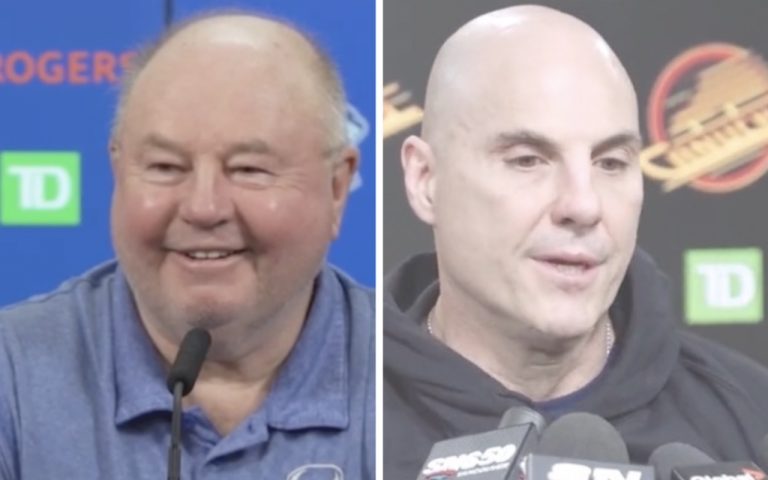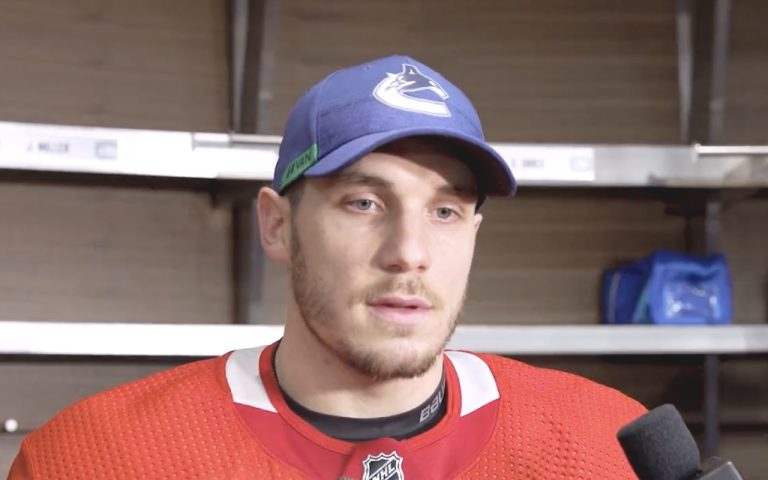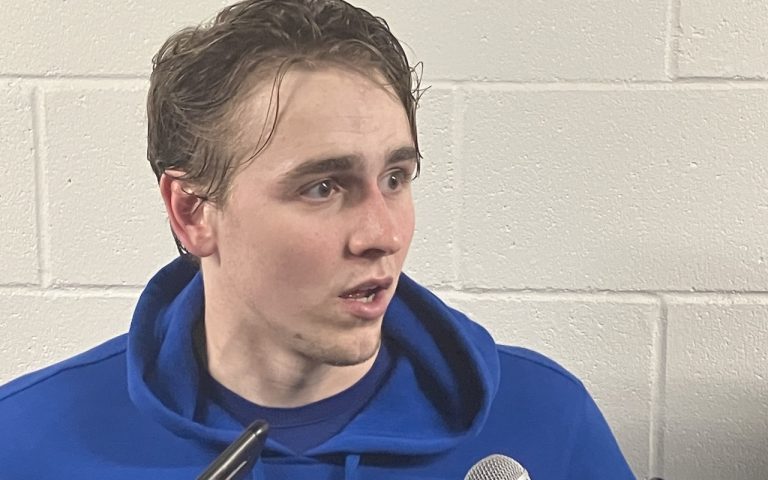What those in the organization knew all of last season and what many in the hockey world discovered in hindsight, the Vancouver Canucks were always trading Bo Horvat, never signing him.
That’s all fine and dandy.
What matters most is the importance of the deal and its timing. It was done almost strictly for financial reasons, but its impact sent ripples through less tangible elements of the hockey team. Obvious roster make-up, chemistry and opportunity.
Other than the fact the club chose J.T. Miller over Horvat, by signing the previous to a eight-year, $56-million deal on September 2nd of last year, there was nothing remotely controversial about what unfolded.
It’s not as though Horvat was a problem. He communicated well with his coaches and responded accordingly to any requests to step up his play or pass along messages to teammates. He sat next to Miller in the dressing room.
Too much of a country club feel? Too laissez faire? Complacency overriding urgency? That would have been my argument under Horvat’s watch, but that observation is moot.
With Elias Pettersson’s future contract looming and other salary cap issues to handle, there was simply no way for the Canucks to keep Horvat around.
Positive Side Effects For All
What may have made it hard to believe for Canucks fans was Horvat’s outstanding production last season. He scored at a career best rate leading up to the deal that sent him packing to the New York Islanders on January 30th.
Knowing a move was inevitable, Horvat was simply making the most of a contract year. Every puck he touched went in and it paid off in spades.
Less than a week after the trade, Isles GM Lou Lamoriello signed Horvat to an eight year deal for $500,000 more per season than what Miller is making.
Go figure.
By comparison, literally and figuratively, the Canucks came out ahead. Horvat’s performance while still in Vancouver simply sweetened the pot.
The Canucks also picked up Anthony Beauvillier, prospect Aatu Räty and a 1st round pick. Always a bonus, regardless of what Beauvillier’s future holds.
The intangibles in this case proved far more valuable. The change allowed for the eventual promotion of Quinn Hughes to Canucks captain. He’s embraced the role to say the least and his confidence has skyrocketed.
Miller’s alpha male competitiveness and sense of desperate determination rose to the surface, just as a new commander arrived to add to that sense of urgency and focus. Head coach Rick Tocchet was brought in a week before Horvat was moved.
Meanwhile, the Canucks began a trek to salary cap breathe-ability.
Gee, although it definitely wasn’t always pretty, one starts to think maybe Canucks President of Hockey Operations Jim Rutherford had a plan.
Captain Deals
There’s a myriad of reasons why teams have traded their captain in NHL history.
Simple concepts, like a late career change-of-scenery for a valued member of a hockey family. Think of Claude Giroux of the Philadelphia Flyers looking to escape and also needing to be moved for purposes of a rebuild in 2022.
More complex reasoning, like changing an entire culture. See Joe Thornton from the Boston Bruins in 2006.
((the fascinating details of the how’s and why’s of that case can be found at the very bottom of this link))
Then of course there’s the uber-scenario of Wayne Gretzky being dealt from the Edmonton Oilers in 1988.
Others are some variation of a combo platter of circumstances and reasoning.
The Moral Of The Story
Change is good, timing is everything; rudimentary clichés that directly apply in this case.
While we continue to look at the other personnel changes and additions that have been key to the Canucks resurgence, we should remember the Horvat deal as laying a large hunk of that foundation.
Regardless of circumstances, it’s no different from the aforementioned in its importance and potential impact.
Recent Canucks:
— Canucks Game Day 13; Big Time VAN Scorers, Senators Match-Up



